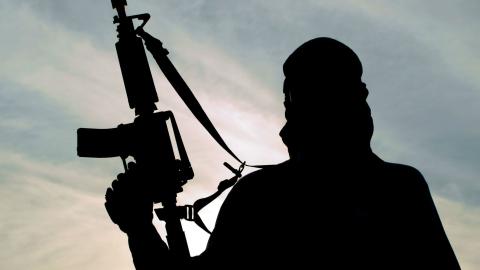
Katsina is one of the states most affected by terrorism and banditry in Nigeria's North-West region.
Four leaders of gangs of bandits terrorising Katsina State have voluntarily surrendered themselves to the police, along with several arms and ammunition, as well as rustled cows.
Parading the repentant bandits at the police headquarters in the state, Police Commissioner, Sanusi Buba identified the four to include Sale and Mani Turwa, Ado Sarki and Sani Mai-daji.

Buba, who was represented by command’s spokesperson, Gambo Isah, said the bandits surrendered 23 AK-47 rifles, two General Purpose Machine Guns (GPMG), one AK-49, rifle, 109 GPMG ammunition, and 94 7.62mm live ammunition of AK-47 rifle.
“We are not begging or even persuading them to surrender,” the commissioner said
“The Nigeria Police force and other sister security agencies will leave no stone unturned in isolating and dealing decisively with individuals and groups of unrepentant bandits who refuse to surrender and keep hibernating in the forests.
“The Command wishes to assure the good people of the state that banditry and other crimes will soon become history as the security forces are on top of the situation.”
Katsina is one of the states most affected by terrorism and banditry in Nigeria's North-West region.
On December 11, 2020, some bandits kidnapped 344 students of Government Science Secondary School, Kankara. They were released about a week later.
However, on December 19, 84 Islamiyya students of Hizburrahim Islamiyya in Mahuta village, Dandume Local Government Area of the state were also kidnapped but rescued shortly after.
Governor Aminu Masari of Katsina State had in 2020 said his administration has pulled out of the peace deal it had with the gunmen.
Masari said the bandits have continued to carry out attacks with their accomplices from Zamfara, Kaduna and Niger Republic which have led to “indiscriminate killings” in the state.
He had said, “The armed bandits have betrayed our trust in them, following a peace agreement earlier negotiated with them, in our quest to find a lasting peace in the state,” he was quoted as saying.
“We chose dialogue for peaceful coexistence in the state and we have done our best; yet, the attacks continue.
“As a result of the peace agreement, the government banned vigilante groups and identified cattle routes and facilitated free movements of bandits to convey their livestock in the markets.”